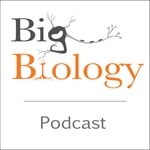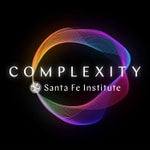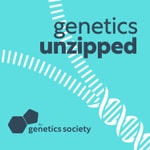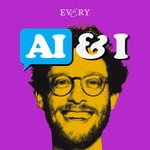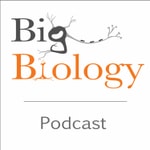Night Science – Details, episodes & analysis
Podcast details
Technical and general information from the podcast's RSS feed.
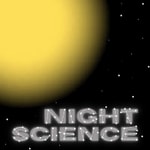
Night Science
Itai Yanai & Martin Lercher
Frequency: 1 episode/20d. Total Eps: 76

Where do ideas come from? In each episode, scientists Itai Yanai and Martin Lercher explore science's creative side with a leading colleague. New episodes come out every second Monday.
Recent rankings
Latest chart positions across Apple Podcasts and Spotify rankings.
Apple Podcasts
🇨🇦 Canada - naturalSciences
03/08/2025#72🇬🇧 Great Britain - naturalSciences
03/08/2025#44🇩🇪 Germany - naturalSciences
03/08/2025#49🇺🇸 USA - naturalSciences
03/08/2025#65🇫🇷 France - naturalSciences
03/08/2025#63🇨🇦 Canada - naturalSciences
02/08/2025#59🇬🇧 Great Britain - naturalSciences
02/08/2025#23🇩🇪 Germany - naturalSciences
02/08/2025#41🇺🇸 USA - naturalSciences
02/08/2025#83🇫🇷 France - naturalSciences
02/08/2025#45
Spotify
No recent rankings available
Shared links between episodes and podcasts
Links found in episode descriptions and other podcasts that share them.
See allRSS feed quality and score
Technical evaluation of the podcast's RSS feed quality and structure.
See allScore global : 58%
Publication history
Monthly episode publishing history over the past years.
62 | Dianne Newman and the visceral and intentional sides of science
Season 5 · Episode 3
lundi 19 août 2024 • Duration 40:09
Dianne Newman – a molecular microbiologist at CalTech – is a professor both in Biology and Geology. In this episode, she encourages young scientists to pursue questions to which they have a visceral connection, rather than following popular trends. In its search for fundamental truths guided by our inner biases and preferences, Dianne likens scientific curiosity to artistic expression. She emphasizes our control over how much we dwell on the difficult aspects of our research, helping us to find satisfaction in creatively working around whatever obstacles we meet. Dianne also reflects on the unpredictable nature of research, and stresses how a problem that somebody else gives you can very rapidly become yours if you take it upon yourself to become its creative driver.
This episode was supported by Research Theory (researchtheory.org). For more information about Night Science, visit https://www.biomedcentral.com/collections/night-science .
61 | Tina Seelig on what to do with a really bad idea
Season 1 · Episode 61
lundi 15 juillet 2024 • Duration 29:31
Tina Seelig is Executive Director of the Knight-Hennessy-Scholars at Stanford University. She is widely known for teaching creativity courses and workshops with an entrepreneurial focus. In this episode, Tina emphasizes the importance of living in the problem space longer, taking time to challenge assumptions and reframe questions before rushing to solutions. We discuss how deliberately generating bad ideas can lead to innovative solutions, as they allow for bigger conceptual leaps and often contain the seeds of brilliant ideas. Treating ideas as less precious allows for a continuous flow of creativity. But ideas aren’t cheap – they are free but incredibly valuable, like oxygen.
This episode was supported by Research Theory (researchtheory.org). For more information about Night Science, visit https://www.biomedcentral.com/collections/night-science .
52 | Sean B. Carroll – he told some good stories
Season 1 · Episode 52
lundi 12 février 2024 • Duration 39:03
Sean Carroll is a world-renowned scientist, author, educator, and an Oscar-nominated film producer. Sean sees storytelling as the key to all he does. Similar to how musicians get inspiration by listening to other people’s music, Sean attributes his own creativity to his insatiable habit of reading about other people’s science – that’s how he “fertilizes his garden”. To tell a good story, he urges us to seek the emotions. But storytelling is not just for communication: in a research project, we also must develop a narrative, connecting the dots.
For more information on Night Science, visit https://www.biomedcentral.com/collections/night-science .
51 | Nigel Goldenfeld and the jazz of impossible problems
Season 1 · Episode 51
lundi 29 janvier 2024 • Duration 39:13
Nigel Goldenfeld is the Chancellor's Distinguished Professor in Physics at the University of California at San Diego. In this episode, he talks with us about how research is an art form, and how he tries to help graduate students make the transition from being a “classical musician”, where the goal is to faithfully reproduce every note supplied by the composer, to being a “jazz musician”, where collaborators have to develop the beauty of the composition – or here, the science – on the spot. Nigel emphasizes the importance of suspending disbelief in the resulting improvisations, and the need to feel free to say stupid things. He points out that if our work’s impact is measured by the ratio of what we contribute to what everyone else contributed, then the easiest way to make a big impact is by minimizing the denominator – to work on something that no one else is working on. And the three of us argue whether the optimal group size for improvisational scientific discussions is two or three people.
This episode was supported by Research Theory (researchtheory.org) and the Independent Media Initiative (theimi.co). For more information on Night Science, visit https://www.biomedcentral.com/collections/night-science .
50 | It takes two to think
Season 1 · Episode 50
lundi 15 janvier 2024 • Duration 23:31
Despite the variety of creative approaches practiced by different scientists, one tried-and-true though often overlooked — trick for generating new ideas stands out. It may sound trivial, yet it is as reliable as it is simple: talk to someone. By talking with other people, we not only pool the information or ideas that each of us individually lacks, but we are also able to improvise new thoughts that are not accessible to us alone. In this episode, Itai Yanai and Martin Lercher talk through the ideas in two of their editorials (available at https://www.nature.com/articles/s41587-023-02074-2 and https://genomebiology.biomedcentral.com/articles/10.1186/s13059-021-02575-w).
49 | Rich White on living on the edge cases
Season 1 · Episode 49
lundi 8 janvier 2024 • Duration 43:56
Rich White studies cancer as a professor at Oxford University. Rich is not only a brilliant physician-scientist but also a great friend of Itai Yanai, one of the two Night Science hosts. In this episode, Rich talks about how often the process that led to a particular result can be more interesting than the result itself – something that is true not only in science but also in fields such as art or writing. He emphasizes that the best research strategy depends greatly on the researcher’s personality. He himself thrives on being on the edge of a field, ideally working on a common question with scientists from different disciplines or even philosophers and historians. Rich recounts how he identifies new questions by finding connections between the edge cases of several papers – observations the authors couldn’t make sense of, but still put in their manuscripts. And Rich and Itai reveal the true story behind one of their joint papers, where the breakthrough came in an open-ended creative meeting from staring at the data – after a first, much more boring draft had already been written!
This episode was supported by Research Theory (researchtheory.org) and the Independent Media Initiative (theimi.co). For more information on Night Science, visit https://www.biomedcentral.com/collections/night-science .
48 | Carolyn Bertozzi and a long game called science
Season 1 · Episode 48
lundi 25 décembre 2023 • Duration 40:47
Carolyn Bertozzi is a Professor at Stanford University. In 2022, she was awarded the Nobel Prize in Chemistry. In this episode we talk about how the process of science is unstructured, so you don’t know when and where the next idea is going to come – sometimes even at the supermarket checkout line. For Carolyn, science is a long game, where one person’s negative result might be picked up a decade or a century later, leading to a new breakthrough. When a field is just being born, its new members may have a difficult time finding positions in academia and industry, as they are not experts in any traditional field. And Carolyn tells us how being in a band with Tom Morello, the guitarist of Rage Against The Machine, taught her about the personal chemistry required for running a successful lab.
This episode was supported by Research Theory (researchtheory.org) and the Independent Media Initiative (theimi.co). For more information on Night Science, visit https://www.biomedcentral.com/collections/night-science .
47 | Stephen Quake and the Creative Network
Season 1 · Episode 47
lundi 11 décembre 2023 • Duration 35:09
Stephen Quake is a Stanford University professor and the Head of Science at the Chan Zuckerberg Initiative (CZI). Among his many inventions are DNA sequencing methods for non-invasive prenatal testing. In this episode, Steve tells us about his tricks for the creative scientific process, including the surprising usefulness of jetlag, the role of generosity – rather than a transactional approach – in collaborations, and the art of making progress in fields that are new for you, including a high threshold for embarrassment. Throughout the research process, Steve encourages his team to keep the faith that something interesting will happen. Training for young scientists should include a place for students to make mistakes, Steve observes, as the need to always be correct is not conducive to research.
This episode was supported by Research Theory (researchtheory.org) and the Independent Media Initiative (theimi.co). For more information on Night Science, visit https://www.biomedcentral.com/collections/night-science .
46 | John Mattick and doing what your mother taught you
Season 1 · Episode 46
lundi 27 novembre 2023 • Duration 30:59
John Mattick is Professor of RNA Biology at the University of New South Wales in Sydney, Australia. For decades, he has been on a mission to show that the large portions of the human genome that many scientists consider useless "junk" instead have important regulatory functions. In this episode, he tells us that his creative process involves always seeing things from different perspectives – something he learned as a teenager listening to the debates of his mother and her sisters. He reveals how publishing a manifesto can supercharge your research. We discuss how science lurches from paradigm to paradigm, and how the current best guess, if untestable at the time, can become accepted wisdom. And he tells us that he advises his graduate students that it's very hard to be creative when you're still in the fog of ignorance, but that they should always look for the things that don't make sense to them - sometimes that's a clue to something worth chasing.
For more information on Night Science, visit https://www.biomedcentral.com/collections/night-science .
45 | Peter Ratcliffe on being the Master of Daydreams
Season 1 · Episode 45
lundi 13 novembre 2023 • Duration 35:17
Peter J. Ratcliffe shared the 2019 Nobel Prize in Physiology or Medicine for his work on oxygen sensing in animal cells. He directs research institutes in London and Oxford. In this episode, he reveals the interplay between dissociation – daydreaming – and interaction with colleagues as a major source of his scientific creativity. He emphasizes that to make an important discovery, you must define your own question, even as everyone – from colleagues to editors and funders – will try to convince you otherwise. We discuss how too much planning can make you unhappy, and how everyone overestimates the information transfer in lectures and presentations.
For more information on Night Science, visit https://www.biomedcentral.com/collections/night-science .

